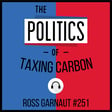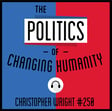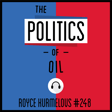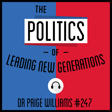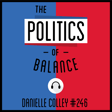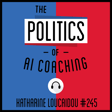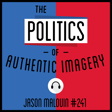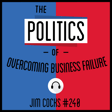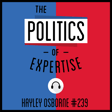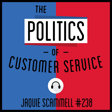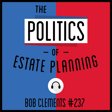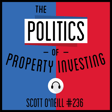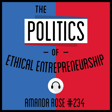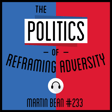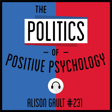
244: The Politics of Online Retail - Grant Arnott
Retail has been undergoing an unprecedented transition of late and the global pandemic speeded that up in a way one could maybe not have predicted. Online platforms have led to new sales channels and fresh opportunities to reach out to a world of customers, and over the past 20 years more globalisation has opened markets and introduced new competitors into the mix in ways not seen before. In tougher economic times we are also seeing a wave of online brands come and go faster than ever as competition for our money gets harder. How can they win us over?
Grant Arnott is the CEO of Global Marketplace, an Australian-based e-commerce group with businesses in Australia and New Zealand. He is a highly respected veteran of online retail and business media, and an accomplished entrepreneur.
Grant is the founder of Click Frenzy, Australia’s original and best-known online shopping event, and Power Retail, the dedicated media and insights resource for the e-commerce industry. He also launched the E-Commerce Leaders’ Playbook in 2012, the Power Retail Top 100 in 2013 and the All Star Bash in 2016.
His pathway into e-commerce and entrepreneurship was somewhat unconventional – a university dropout, Grant spent six years in California teaching water skiing before deciding to get a real job (and that Americans were in fact quite looney). Qualified to drive a boat and yell “Arms straight!”, he returned to his hometown of Melbourne to try his hand at freelance writing.
Some initial gigs in tourism writing led to a real job with a publishing house specialising in business media, where he learned the craft of working with niche professional audiences to deliver engaging and useful content. In 2009, Grant helped launch the first Online Retailer Conference in Australia, and there he saw the greenfields opportunity for e-commerce at that time. He launched Power Retail in 2010 as a way to bring a burgeoning but fragmented e-commerce industry together, and the site soon became essential reading for Australian retail professionals.
Grant is married with two spoilt Golden Retrievers, plays Over 50s AFL (badly) and also has a commercial helicopter license, moonlighting as a tourist pilot on Phillip Island.
We discuss:
1. What is the current state of play for online retail locally and globally? Is it thriving?
2. Supply chain resilience was tested greatly during the COVID-19 pandemic when nations like Australia shut borders. How have retailers and brands learned from this?
3. I read in one McKinsey report that more big and small retail players are being pressured to reduce their environmental impact, with a special focus on climate change, biodiversity, and scarce resources. Fashion alone accounts for 4 percent of greenhouse gas emissions. Indeed, consumers are paying increasing attention – and sustainable retail is here to say it seems. It feels like we now have a generation that is extraordinarily focused on ensuring that waste does not exist in our fashion, furniture, etc. How are these factors driving businesses to leaner and greener?
4. The best trends or innovative tools in online retail right now?
CONTACT DETAILS
https://www.linkedin.com/in/grantarnott
Power Retail | Stay Up To Date On All Things Ecommerce
Click Frenzy | Australia's Favourite Online Sale
POE listener offer: Zencastr is my podcast platform of choice. Use my special link (zen.ai/thepoliticsofeverything30 [http://zen.ai/thepoliticsofeverything30]) and use code "THEPOLITICSOFEVERYTHING" to save 30% off your first three months of Zencastr professional. #madeonzencastr
